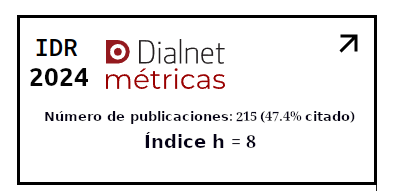Protocol of care for indigenous people deprived of liberty
A look from the Principle of Equality and Non-Discrimination
Keywords:
Indigenous peoples; racial discrimination; penitentiaries; human rights; ParaguayAbstract
In the Republic of Paraguay, indigenous peoples are victims of racial discrimination; the one that is accentuated in relation to those that are deprived of liberty in the national penitentiaries. It is for this situation that in 2018 the Ministry of Justice approved the Action Protocol for indigenous persons deprived of liberty (Protocol). The work aims to investigate the Protocol of action for indigenous peoples deprived of liberty of the Ministry of Justice of 2018, in order to analyze whether it is appropriate or not to the autonomous rights of indigenous peoples. Regarding the methodology, the focus is qualitative, non-experimental and cross-sectional design through a detailed and documentary study of the Protocol in light of the Constitution and international human rights law. Although the Protocol constitutes a sound legislative decision, it lacks in terms of regulation according to the interdependence of human rights. On the other hand, regarding legislative technique, the Protocol could be more operational than programmatic in order to become a direct source of indigenous rights.
Downloads
References
CERD. (2016). Observaciones finales sobre los informes periódicos cuarto a sexto del Paraguay. Naciones Unidas. Recuperado de https://acnudh.org/comite-para-la-eliminacion-de-la-discriminacion-racial-cerd-paraguay-2017/
Constitución de la República del Paraguay. (1992). Asunción, Paraguay.
Dirección General de Estadística, Encuestas y Censos. (2019). DGEEC comparte datos sobre los pueblos indígenas en Paraguay. Recuperado de https://www.dgeec.gov.py/news/news-contenido.php?cod-news=320
Galeano Monti, J. (coord.). (2018). Vulnerables tras las rejas: Informe sobre personas indígenas, que viven con vih y con discapacidad psicosocial privadas de libertad en cinco cárceles del Paraguay. Asunción: Arandurá.
Gómez, L. (2011). Un espacio para la investigación documental. Revista Vanguardia Psicológica, 2, 226-233.
Medina, S.; Gutiérrez, M. y Forero, L. (2016). Situación de indígena privados de libertad en establecimientos carcelarios: Propuestas para un pluralismo igualitario. Bogotá: Ministerio de Justicia.
Mendieta, M. (2018). El principio de igualdad y no discriminación: Aproximaciones a la discriminación estructural del estado paraguayo hacia los pueblos indígenas. Estudios sobre Derecho y Justicia, 10, 153-180.
Ministerio de Justicia. (2018). Protocolo de actuación para personas indígenas privadas de libertad. Recuperado de https://www.derechoshumanos.gov.py/application/files/3515/3554/5255/Protocolo_Indigena.PDF
Núñez, C. (2016). La tutela judicial de los derechos de pueblos indígenas y personas privadas de libertad: una respuesta estructural. Revista IIDH, 63, 187-266.
Published
How to Cite
Issue
Section
License
Copyright (c) 2020 ACADEMO Revista de Investigación en Ciencias Sociales y Humanidades

This work is licensed under a Creative Commons Attribution 4.0 International License.








